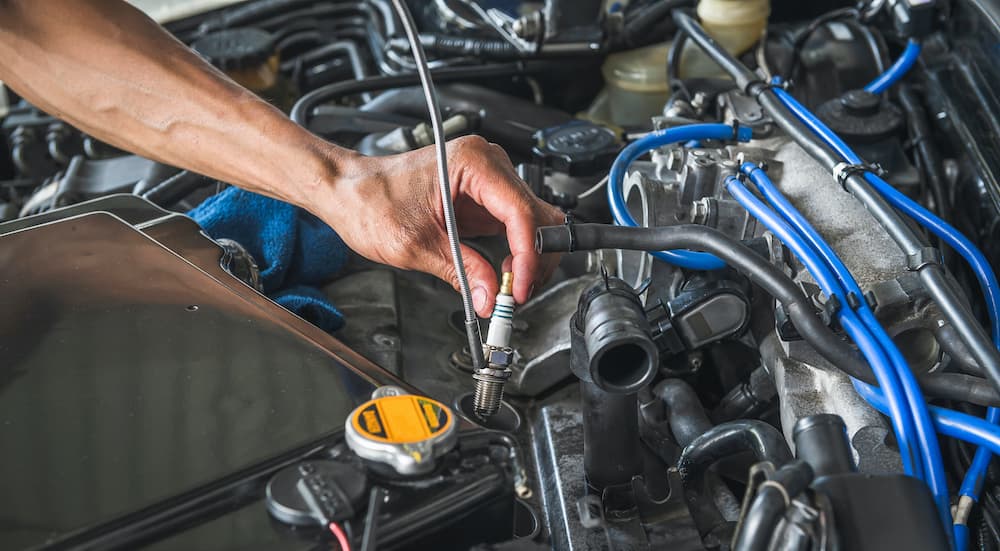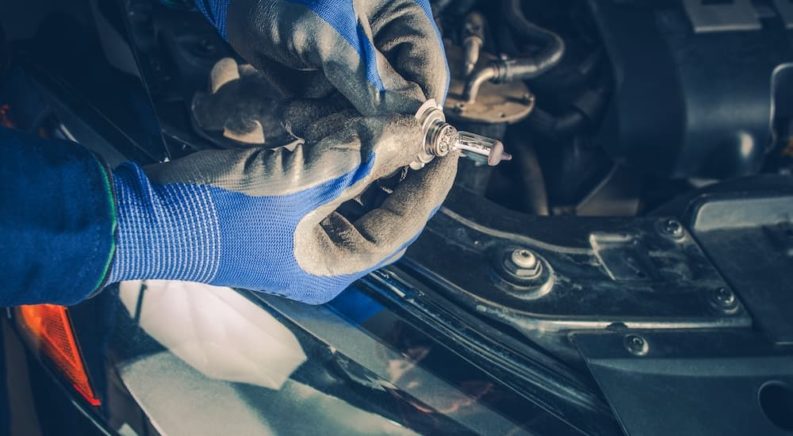Whether you like to work on your vehicle yourself, turn to Google for “Ram service near me” at the first sight of trouble, or you fall somewhere in between, it’s important that you follow the service schedule for your vehicle. While you can trust the advice and schedule provided when you visit a certified Ram service center, I think it’s always best to have a good sense of the timetable you’re dealing with. Knowing your truck’s service schedule lets you plan ahead when it comes to major maintenance items, so you aren’t blindsided when the service tech tells you it’s time to replace the engine coolant or change the transmission fluid.
In many ways, the Ram 1500 service schedule is a lot like what you’ll find with any other similar model, but you always want to go off what your truck’s manufacturer says. The people who built your truck know the best way to care for it properly and how often you should have service done (or do it yourself) to keep it running beautifully. Some of these things are pretty simple, and you should do them often, like once a month, while other things aren’t needed for years of use. Let’s take a look at how Ram suggests you should handle service and maintenance for the Ram 1500 and what it all means.
A Few Basics to Start
Before we get into the specifics, there are a few things I should mention. First, this is going to specifically cover the current-generation Ram 1500 with either the 3.6L or 5.7L engine–if you have a model with a diesel engine, then your service schedule will be different in some ways. This also isn’t for the supercharged 6.2L HEMI engine in the Ram TRX, so keep that in mind too. I should also mention that the following information will be for what Ram considers normal use, and if you use your truck more heavily, things can change.
For example, if you make a lot of frequent, short trips, if you do a lot of towing, or use your truck in extreme hot or cold weather, then you are using your pickup under what Ram calls “Severe Operating Conditions.” This also applies if you like to go off-road a lot or drive primarily on dirt roads, since the dust will take a toll on your engine a lot sooner. These conditions require more frequent routine maintenance (I’ll mention this again down below). Finally, if your oil change indicator illuminates on your dashboard, then it’s time to have your oil changed and get routine service, regardless of the timing or mileage; have this taken care of as soon as you can, within your next 500 miles.
Finally, note that all of these scheduled items are cumulative, so they’re for every month, every year, every two years, etc. This means that when you’re at year eight, you need to do the scheduled service for every year, two years, and four years. Also, keep in mind that the mileage and time are always “whichever comes first,” so heavy use will require more frequent service due to mileage.
Once a Month (or Before a Long Trip)
According to Ram, every month, you should do the following:
- Check the level of the oil in your engine.
- Check the level of your windshield washer fluid.
- Check your tire pressure and look at your tires for any uneven wear or damage to them–you should rotate your tires if you notice uneven wear and replace them if damaged.
- Check the levels of other fluids, including the coolant reservoir, your brake master cylinder, and power steering.
- Check the function of all interior and exterior lights – replace any bulbs if lights are dim or dead.
This is all really simple stuff, and a lot of it you can do at the same time: you can check all of the fluid levels at once while you have your hood up. If you notice any fluid levels are low, then top them up and check for signs of leaks just to be safe. Note that Ram suggests all of this before a long road trip too; even if you’ve done them recently, it’s a good idea to check them again before you hit the road for a week.

Every Oil Change Interval
The current Ram 1500 is equipped with an oil life computer that will alert you when you need an oil change. This is much more precise than following a traditional 5,000-mile oil change interval and tailors the oil change interval to the type of use you put on your truck. If you put mostly highway miles on your truck, the interval will be much longer than if you find yourself in a lot of stop-and-go traffic. This routine maintenance interval includes:
- Change engine oil and filter
- Rotate your tires (assuming no previous signs of uneven wear)
- Inspect brake pads, shoes, rotors, hoses, and parking brake
- Inspect the Constant Velocity (CV) joints on the suspension
- Inspect battery, clean and tighten terminals
- Inspect engine cooling system and hoses
- Inspect exhaust system
- Inspect engine air cleaner if you use your truck off-road or in dusty conditions
All of these things need to be done every year, and they’re typically all done at the same time, especially if you take your vehicle to a Ram service shop. As long as nothing is wrong, the inspections are all pretty quick and a great way to make sure problems are spotted before they turn into more-expensive trouble. Beyond this routine service, there are a number of other things you need to handle at certain intervals.
Every 20,000 Miles or 2 Years
Other than the yearly service requirement, this is the most demanding one to take care of as it includes:
- Inspect the front suspension and tie rod ends–replace if needed
- Inspect the brake linings–replace if needed
- Replace cabin air filter
- Replace Evaporative System air filter if driving in dusty in environments
You can see that between this and the yearly inspection, pretty much every part of your brakes is checked every two years.
Every 30,000 Miles or 3 Years
There are only a couple of things that need to be handled every three years, though when you’re looking at 60,000 miles or 6 years, a lot of things line up, and the service needs can be much more significant overall. This is important to remember as you’re scheduling your service, or working on your vehicle yourself, since it means the work is going to take longer to complete. The service for this interval includes:
- Inspect front and rear axles for oil leaks, changing fluid if leaks are detected or the truck is used for regular towing
- Replace engine air filter (this may need to be done sooner if you use your truck in severe conditions or take it off-road)
- Inspect transfer case fluid, changing fluid if low or the truck is used for regular towing (60,000 miles only)
In general, there’s not too much that needs to happen at this point; especially if you have a two-wheel drive truck and don’t tow regularly. Just remember to take care of all of the yearly service for your Ram pickup as well.

Every 100,000 Miles or 10 Years
Once you reach this milestone, you’ll need to take care of a few things that you haven’t needed to worry about up to this point. This is in addition to the requirements for every year and every two years, of course, and these services will help you get the most from your truck. They include:
- Replace the spark plugs
- Flush and replace the engine coolant (you should do this at 150,000 miles if it comes before the 10-year mark)
- Inspect the Positive Crankcase Ventilation (PCV) valve on the engine–replace if necessary
One thing to note here is that replacing the spark plugs is only needed at 100,000 miles; the year doesn’t actually matter as this is purely based on use and not time. There’s not a ton of extra stuff that needs to be done at this point, though you still need to take care of the usual things. The biggest service milestone is going to be the 120,000-mile or 12-year mark as you’ll need to handle things required every year, two years, three years, and four years. Of course, that’s a small price to pay for getting such reliable use out of your truck for more than a decade. Ram pickups are well known for their dependability, so as long as you treat them right, they will keep working for you for a long time.

